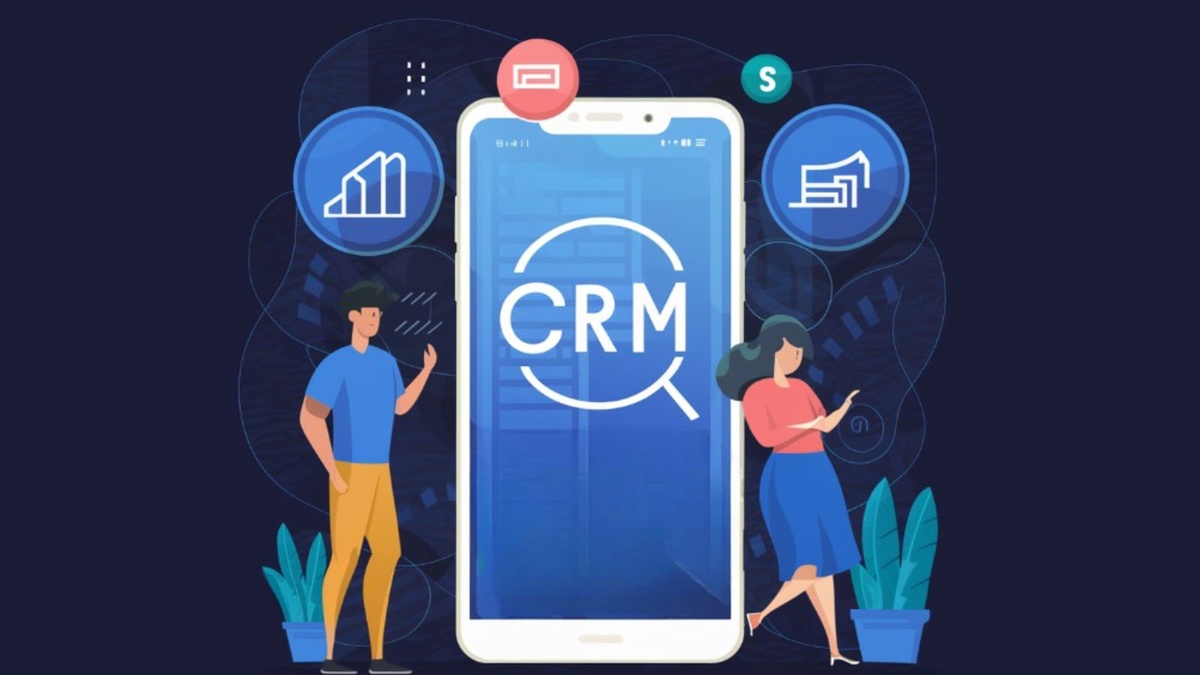In today's business landscape, custom CRM solutions play a crucial role in enhancing customer relationships and driving growth. Mobile apps have emerged as powerful tools within this framework, offering businesses the flexibility and convenience to manage customer interactions on the go. Let's explore the significant impact of mobile apps in shaping personalized CRM solutions for modern businesses.
Understanding Custom CRM Solutions
Before we delve into the role of mobile apps, it's essential to understand the concept of custom CRM solutions. Traditional CRM software provides a one-size-fits-all approach, often lacking the flexibility to adapt to the unique needs of different businesses. Custom CRM solutions, on the other hand, are tailored to meet the specific requirements and workflows of individual organizations.
Custom CRM solutions empower businesses to design systems that align perfectly with their processes, ensuring greater efficiency and effectiveness in managing customer interactions. From lead generation and sales tracking to customer support and feedback management, custom CRM solutions offer a comprehensive suite of tools to streamline operations and enhance customer satisfaction.
The Mobile Revolution in CRM
The proliferation of smartphones and tablets has revolutionized the way businesses interact with their customers. With the majority of the global population accessing the internet through mobile devices, it's no surprise that mobile apps have become an integral component of CRM strategies.
Mobile apps offer several distinct advantages over traditional CRM software, primarily in terms of accessibility and convenience. Employees can access CRM data and tools from anywhere, at any time, enabling them to stay productive even while on the move. Whether it's updating customer records, responding to inquiries, or closing deals, mobile apps empower sales and support teams to stay connected and engaged, regardless of their location.
1. Enhancing Customer Engagement:
One of the key objectives of CRM is to foster meaningful relationships with customers, and mobile apps play a crucial role in achieving this goal. By providing users with a seamless and intuitive interface, mobile apps make it easier for customers to interact with businesses, whether it's making purchases, accessing support services, or providing feedback.
Personalization is another area where mobile apps excel, allowing businesses to deliver targeted content and recommendations based on customer preferences and behavior. By leveraging data analytics and machine learning algorithms, mobile CRM apps can offer personalized product recommendations, promotions, and notifications, thereby enhancing customer engagement and driving sales.
2. Streamlining Sales Processes:
For sales teams, time is of the essence, and mobile CRM apps help streamline the sales process by eliminating barriers to productivity. With real-time access to customer data, sales representatives can quickly retrieve vital information during client meetings or on-the-go, enabling them to make informed decisions and provide personalized solutions.
Mobile apps also facilitate seamless communication and collaboration among team members, allowing them to share updates, notes, and insights in real time. Whether it's coordinating follow-up activities, scheduling appointments, or tracking sales progress, mobile CRM apps empower sales teams to work more efficiently and effectively, ultimately leading to increased revenue and customer satisfaction.
3. Improving Customer Support:
In today's hyper-connected world, customers expect prompt and efficient support whenever they encounter issues or have questions about a product or service. Mobile CRM apps play a crucial role in meeting these expectations by enabling businesses to deliver timely and personalized support experiences.
Through features such as live chat, ticket management, and knowledge base access, mobile CRM apps empower support agents to address customer inquiries and resolve issues promptly. Moreover, integration with other communication channels such as email and social media ensures that customers can reach out for assistance using their preferred method of contact, further enhancing the overall support experience.
4. Harnessing the Power of Data Analytics:
Data lies at the heart of effective CRM, and mobile apps are instrumental in collecting, analyzing, and leveraging customer data to drive business growth. By capturing data from various touchpoints, including app interactions, website visits, and purchase history, mobile CRM apps provide valuable insights into customer behavior and preferences.
Advanced analytics capabilities enable businesses to segment their customer base, identify trends and patterns, and forecast future demand with greater accuracy. Armed with this information, businesses can tailor their marketing strategies, personalize customer communications, and optimize product offerings to better meet the needs of their target audience.
Overcoming Challenges and Considerations
While the benefits of mobile apps in custom CRM solutions are undeniable, businesses must also be mindful of certain challenges and considerations. Security, for instance, is a paramount concern, particularly when dealing with sensitive customer data. Implementing robust security measures, such as encryption, authentication, and access controls, is essential to safeguard against data breaches and cyber threats.
Another consideration is the need for seamless integration with existing systems and processes. Mobile CRM apps should seamlessly integrate with other business applications, such as ERP and marketing automation platforms, to ensure smooth data flow and consistency across the organization.
Furthermore, usability and user experience are critical factors that can make or break the success of a mobile CRM app. Designing an intuitive and user-friendly interface, optimizing performance for different devices and screen sizes, and providing adequate training and support are essential to ensuring widespread adoption and usage among employees.
Conclusion
Mobile apps play a crucial role in custom CRM solutions by offering accessibility, efficiency, and enhanced user experience. Businesses can leverage these apps to streamline their customer relationship management processes and stay competitive in today's digital landscape. Embracing mobile technology is essential for staying ahead in the market and meeting the evolving needs of customers. By integrating mobile apps into their CRM solutions, businesses can improve productivity, communication, and overall customer satisfaction.


No comments yet